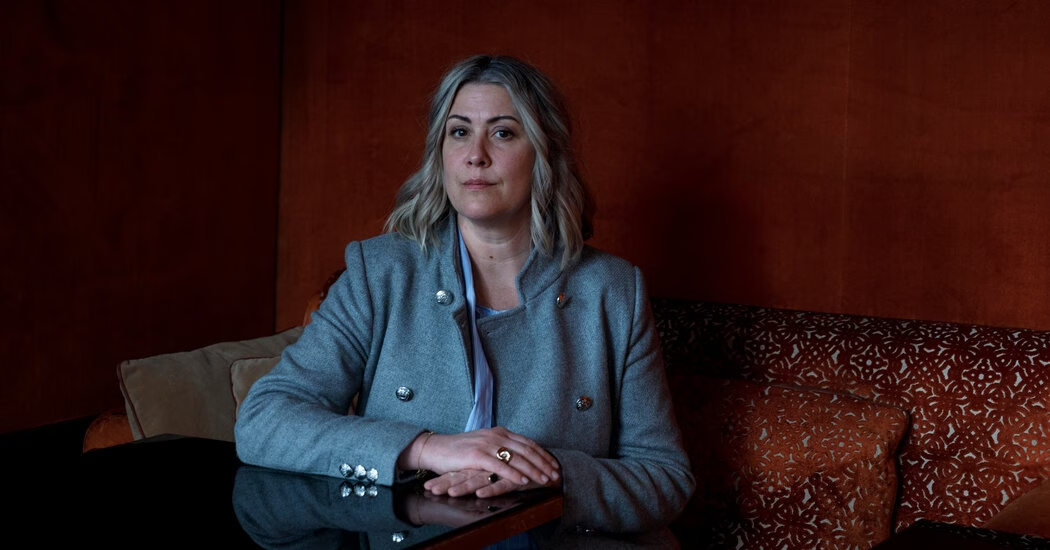When her father and numerous other men were found guilty of sexually abusing her mother in a trial that captivated France, it marked an intensely personal tragedy for Caroline Darian. Despite her efforts to escape the ensuing chaos, she was enveloped by support from crowds of women who rallied around her and her mother, Gisèle Pelicot, a figure who had become an emblem of resistance and dignity as a public advocate for the trial against her husband and fifty other men. However, rather than finding solace in this support, Ms. Darian was consumed by despair. The trial’s failure to address her own claims of abuse by her father, Dominique Pelicot, left her void of the answers and justice she sought.
The trial had closely examined the heinous acts Dominique Pelicot had committed against his wife over nearly a decade, detailing his method of drugging her before treating her as a prop for his sexual exploits with others. Yet, the trial scarcely acknowledged the suspicions against him of also abusing his daughter. This oversight left Ms. Darian feeling as though her own case did not exist within the court proceedings. The verdict, while seemingly a step towards justice for her mother, felt like another betrayal for her, emphasizing her feelings of deep-seated hurt and neglect.
In the months following the trial, Ms. Darian took a significant step by filing her own complaint against her father for rape and sexual assault, a move that coincided with the release of her book detailing her father’s crimes and their profound impact on her life. Central to her case are photographs retrieved from her father’s devices, which Ms. Darian believes prove her father’s abuse, alongside disturbing evidence such as a folder titled “My naked daughter” and photo collages shared with strangers online.
Despite her efforts to find justice, her father, Dominique Pelicot, was only convicted of taking intimate photos without permission. Ms. Darian remains convinced that these photos are evidence of more severe crimes that investigators either overlooked or failed to act upon due to the overwhelming focus on her mother’s case. Her complaint includes various forms of evidence, such as Skype exchanges where her father boasted of abusing her. This new legal filingoccoes with her emotional struggle and strong disbelief in her father’s claims and denials throughout the trial, made more painful by her father’s refusal to acknowledge the truth, even in the face of mounting evidence.
Ms. Darian’s story, while deeply personal, also unfolds against a broader backdrop of trauma that has affected their family. Her father’s alleged abuse has not been confined to his immediate family; he faces charges related to violent crimes against women from the 1990s, indicating a history of predatory behavior. The emotional and psychological toll of these revelations has fractured family bonds, with her relationship with her mother now irretrievably altered due to her mother’s inability or refusal to fully acknowledge the severity of the abuse against her daughter.
Through her efforts to uncover the truth and seek justice, Caroline Darian’s story highlights the complexities and challenges faced by victims of abuse seeking to hold their perpetrators accountable, even when those perpetrators are family members. Her saga, marked by personal sacrifice and a relentless pursuit of justice, underscores the resilience required to confront and survive the aftermath of abuse.
Source: https://www.nytimes.com/2025/03/18/world/europe/gisele-pelicot-daughter-rape-france.html





